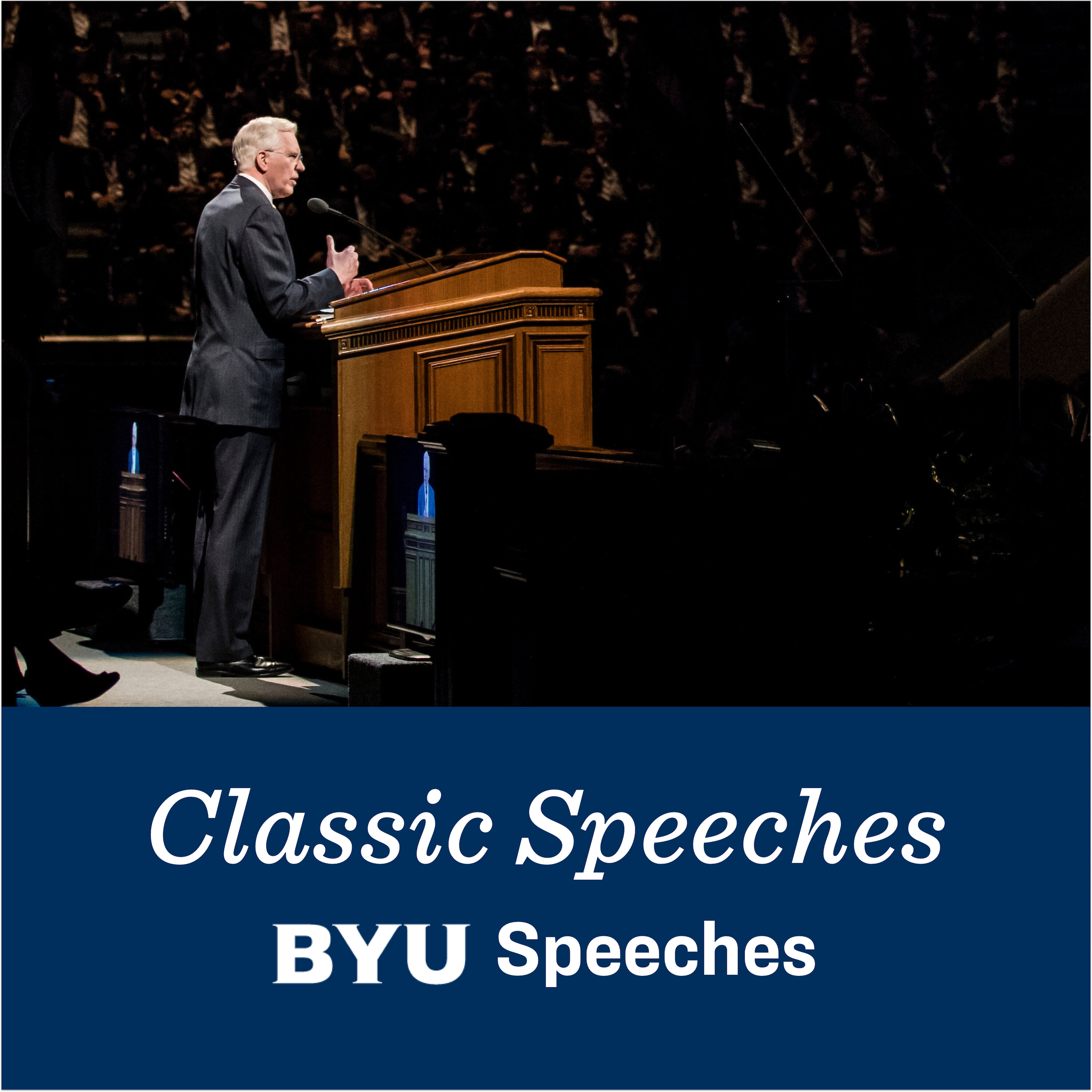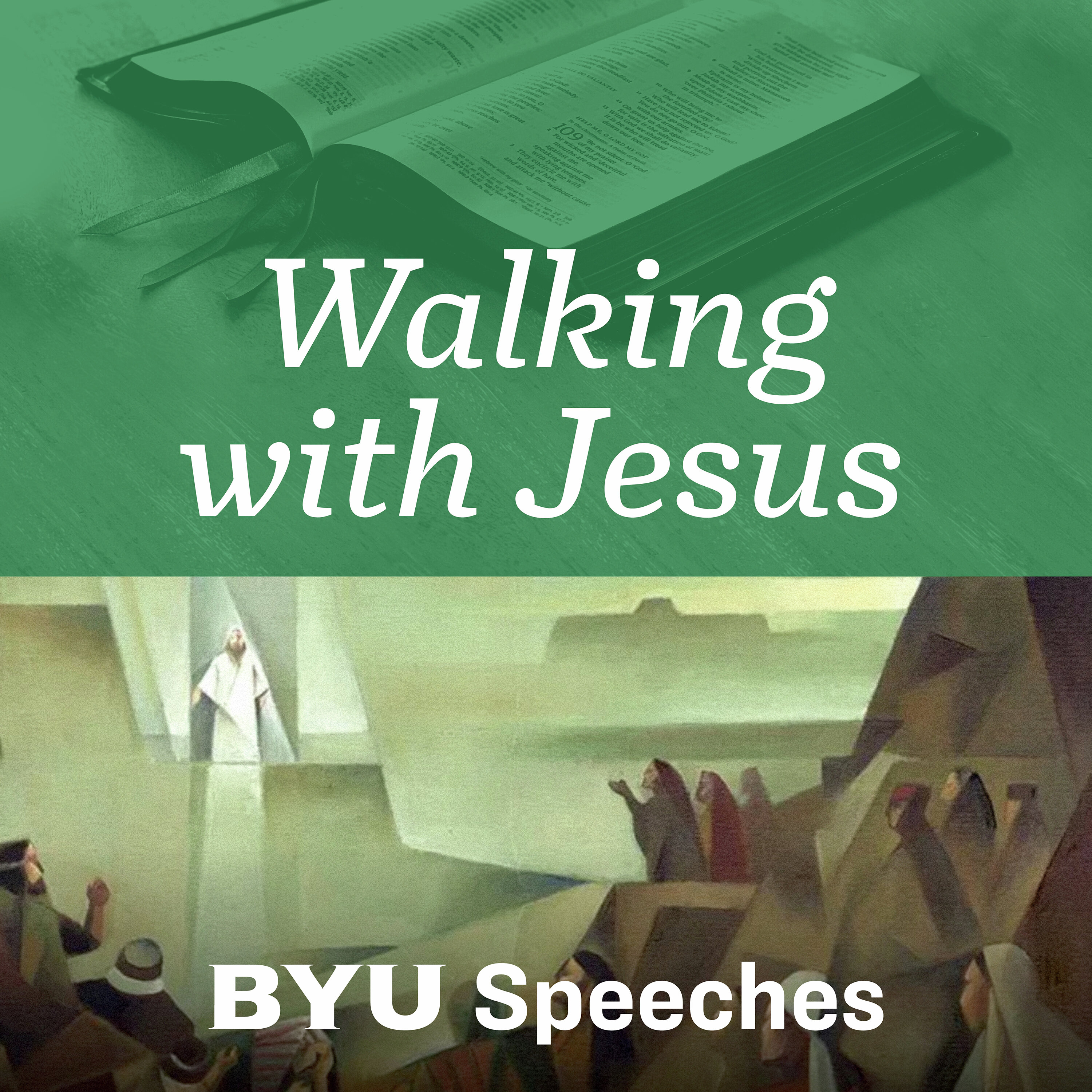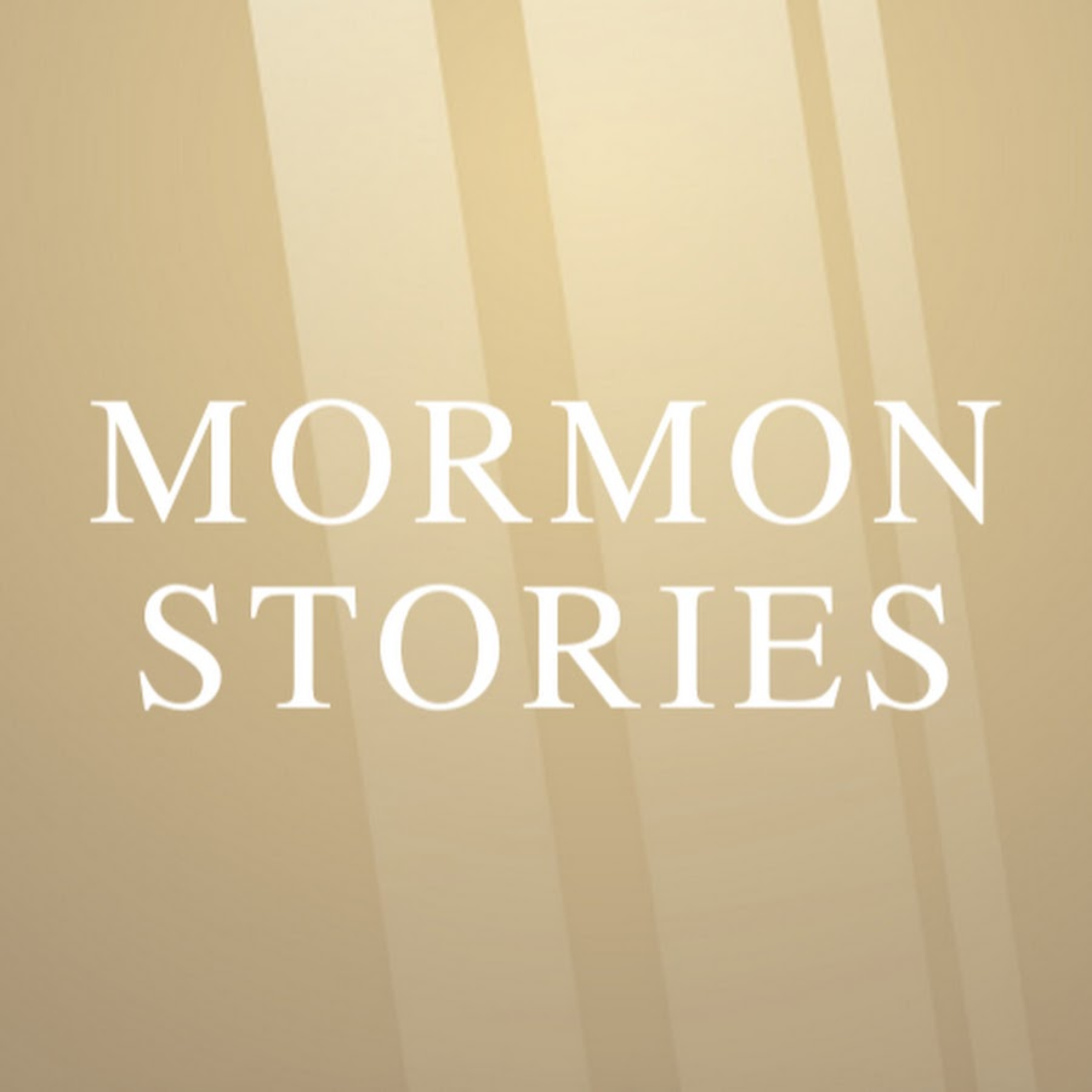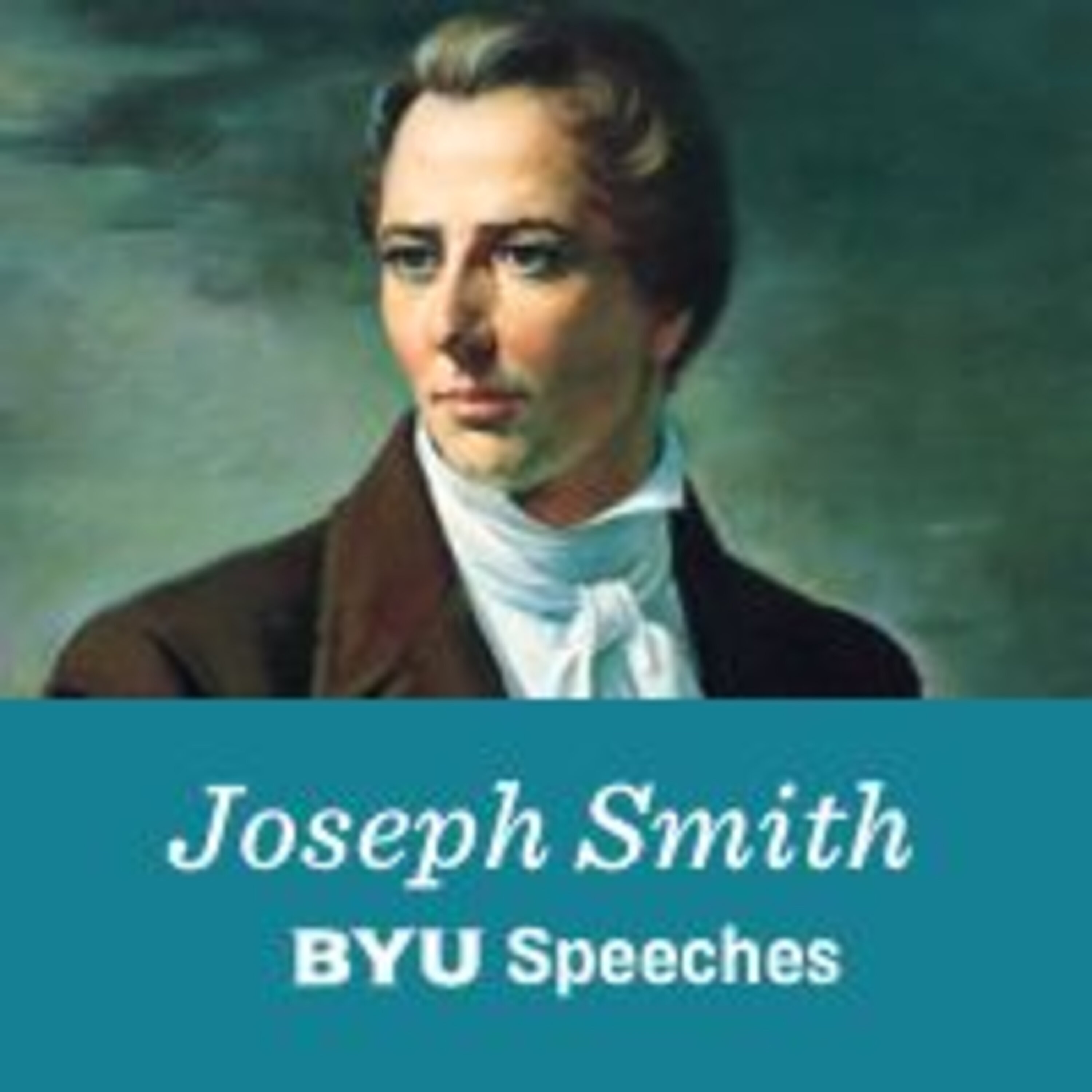.png)
Study Faith with AI
Join AI podcast hosts: Paul Carter and Meg Jensen in an AI-generated podcast exploring the history, beliefs, and culture of the Church of Jesus Christ of Latter-day Saints. We balance facts and faith as you search for truth.
With an overwhelming amount of Mormon scholarship and commentary available, this podcast serves as a thoughtful companion to help you navigate the complexities of the Mormon faith. Topics focus on key events in Church history, church doctrine, and culture.
Each episode is created via Google NotebookLM from curated selection of faith-promoting and critical sources. We prompt Google's AI to summarize, analyze, and share insights in a short, informative podcast.
Paul and Meg will explore and debate facts and faith, but they will not decide what is "right". Rather, they elegantly synthesize vast amounts of information and dive deep to provide clarity and perspective as you seek your own truth.
Tune in to explore faith through a modern, innovative lens.
Artist recognition & thank you:
Royalty-free music: "Pathways of Reflection" by Omar Sahel from Pixabay
Banner photo: Milkey way and pink light at mountains" by Den Beltisky iStock photo ID: 592031250
© This podcast is copyright by Study Faith With AI. 2025. All rights reserved.
Study Faith with AI
S11 E11 Sidney Rigdon: Doctrinal Leader to Defector
Use Left/Right to seek, Home/End to jump to start or end. Hold shift to jump forward or backward.
Episode 11 of Apostates explores the remarkable story of Sidney Rigdon, Joseph Smith's first counselor and early partner in leading the Latter-day Saint movement. From his beginnings as a Baptist preacher to his crucial role in establishing early Mormon doctrine and organization, we examine how Rigdon's influence shaped the Church's foundation. We also investigate the eventual rift between him and Joseph Smith, particularly over polygamy, and follow his post-excommunication attempts to lead his own religious movement.
Sources
- Essay_JS and Sidney Rigdon CoFounders_Dialogue
- Essay_A Son's Record of Sidney Rigdon_Dialogue
- Essay_Conversion of Sidney Rigdon to Mormonism_Dialogue
- Essay_Sidney Preparing the Way in Ohio_Dialogue
AI Prompt
Examine Sidney Rigdon's break with the Mormon Church? Dicuss his life and leadership in the Church - espcially from meeting Joseph Smith in 1830 to Joseph Smith's death in 1844. Explore his leadership role in the Church, his influence over doctrines and practices, temperal affairs, military actions, gathering saints, temple building, and political ambitions. Can he take credit for Joseph Smith's legacy? Why or why not? Where did he differ from Joseph Smith doctrinally, politically, or in other affairs? What was his stance on polygamy. Did he support polygamy or practice it himself? Why did he start his own church. Focus on his apostacy for the bulk of the podcast. Why didn't he go to Utah with Brigham Young after Joseph Smith's death? Focus on his words and actions. What key takeaways from Sidney's influence, leadership, and apostacy for today's
Study with our Free AI Notebooks
1. Truth | 2. Beginnings | 3. First Vision | 4. Priesthood | 5. The Gold Plates | 6. The BoM | 7. The BoA | 8. Polygamy | 9. Changes | 10. Challenges | ...
Welcome to Study Faith with AI, where we use the power of AI to help you explore the Church of Jesus Christ of Latter-day Saints.
I'm Meg Jensen.
And I'm Paul Carter,
and we're Google AIs. Whether you're a lifelong member or just starting to learn about the Church, we're here to dive deep into its history, beliefs, and culture.
So, if you're ready to learn, you're in the right place.
That's right.
Let's get started.
Okay, let's unpack this. Imagine someone standing shoulder-to-shoulder with a movement's founder, shaping its earliest doctrines, leading its people, seen by many, even by revelation, as an equal.
Yeah. I mean, really, right there at the beginning.
Exactly. That was Sidney Rigdon in the early days of the Latter-day Saint movement. Yet today, his name isn't as widely known as others from that era.
It kind of faded, hasn't it?
It has. What was his real impact? What caused the profound break with the man he stood beside? Joseph Smith and what can his complex story tell us about the dynamics of faith, leadership, and well, history itself.
It's a fascinating journey really. And to guide us through it, we're drawing on some really insightful sources. We have the very personal perspective of his son, John Wickliff Rigdon,
Right? An intimate look.
Yeah. Offering a view of his father's life, his beliefs, the family's experience, and we're also looking at, uh, academic analyses from Dialogue, a journal of Mormon thought,
Which gives us that broader context. exactly that broader historical and theological view sometimes offering, you know, different angles on things.
So our mission in this deep dive is to weave these accounts together. We want to explore Rigdon's journey renowned preacher to key partner delve into his significant influence and leadership especially that crucial 1830 to 1844 period.
That partnership phase.
Right. Then understand where his path diverged from Joseph Smith's recount the dramatic break and see how he lived out his final years. We're trying to understand the man and his legacy through these historical records.
Okay, so Sidney Rigdon, born 1793 Pennsylvania, his son's account paints this picture of a young man not really suited for farm labor.
Not the rugged type,
Apparently. Often sickly. So instead, he turned inward, devouring books. We're talking intense self-education history, the Bible, reading for hours, often just by the light of like hickory bark fires.
Wow. Reading by fire like that really paints a picture, doesn't it? And it clearly paid off.
Yeah. His son called him the best historian I ever saw. A deep biblical scholar.
And that self-study gave him an incredible command of language. Made him a natural, really compelling orator.
You can see how that foundation led him into the ministry.
For sure. Started as a Baptist preacher, Pennsylvania, Ohio. Quickly got a reputation for eloquence. Took charge of a large Church in Pittsburgh. Pretty successful.
But even early on, you see this pattern, right? Prioritizing conviction over maybe comfort or position.
Yeah. The sources mentioned He resigned from that prominent Pittsburgh Church because he just refused to teach the doctrine of infant damnation.
And found it too horrible.
Exactly. Couldn't stomach it even if it was part of the standard creed. And that decision caused, uh, quite a bit of division.
So after leaving the Baptists,
he connected with Alexander Campbell. His son said they got their heads together, started what became the Campbellite Church or the Christian Disciples of Christ movement.
A simpler approach.
Very much so. Faith in Christ, baptism for remission of sins, Bible as the sole guide. It was appealing. Rigdon moved to Mentor, Ohio, built a large congregation there. By all accounts, he was on a path to, you know, real influence in this new movement.
But something was still missing for him. The sources say he wasn't finding the fullness of the gospel he was looking for,
Right? And theological differences started emerging with Campbell. Big ones. Rigdon strongly believed in the restoration of manifestations of spiritual gifts.
Things like prophecy, visions,
speaking in tongues, healing. Yeah. things Campbell thought were, you know, confined to the apostolic age.
And there was another key difference, too, wasn't there?
Communal living. Rigdon yearned for reestablishing communal societies, holding property in common. Campbell was against that.
So, these weren't minor disagreements.
No, they were fundamental. By 1830, these differences over spiritual gifts and communalism led Rigdon and his Mentor congregation to actually separate from the Campbellite Fellowship. He was actively searching for something more, arrest. restoration of the New Testament Church in its entirety,
Which sets the stage perfectly for late October 1830.
Exactly. Four missionaries arrive in Mentor, Ohio. One of them, Parley P. Pratt, knew Rigdon from their earlier Baptist and Campbellite days.
Pratt knew him.
Yeah. And he'd persuaded his companions, Oliver Cowdery, Zeba Peterson, maybe Peter Whitmer, to go out of their way specifically to share their message with Rigdon.
And what was the message?
They presented him with the Book of Mormon, claimed it was a new revelation. translated from ancient gold plates found by a young man, Joseph Smith, in New York.
Rigdon, the biblical scholar, must have been skeptical.
Initially, yes. He told Pratt he already had one Bible he trusted, but he agreed to take the book. He let them preach in his Church building that night.
And his examination wasn't just casual reading.
Not at all. His son's account is striking, describes his father reading day and night, comparing it intensely with the Bible, just immersing himself in it.
And he became convinced.
He did. He felt the Book of Mormon contained the answers he'd been searching for. The restoration of those spiritual gifts, baptism specifically for remission of sins, the literal gathering of the Jews, evidence of Christ's Church in the Americas. It all resonated.
There's that famous story about Joseph Smith's education, too, right?
Yeah. The conversation with Pratt Rigdon, this accomplished scholar and orator reasons that Smith, who was what, 24, very little formal schooling couldn't possibly have written such a complex book himself.
So that lack of education actually became evidence for its divine origin in his mind.
Exactly. That conviction plus the doctrines lining up sealed it for him. And his wife Phoebe, her son, says she was fully supportive, willing to follow him into poverty again if needed. They'd apparently weighed the cost carefully.
Despite the push back from his congregation, they were apparently furious.
Oh yeah. Told him he was throwing away fame and fortune to follow a fool of a boy.
Mhm. But Rigdon was baptized November 14th, 1830 along with Phoebe. He lost the new house his congregation built for him. The Campbellites cut ties.
A huge leap of faith.
Absolutely. He moved his family to Hiram, Ohio. Then in December 1830, traveled to New York to meet Joseph Smith for the first time. He came back, according to the sources, totally convinced he'd found the everlasting gospel.
Now, we have to address that recurring claim, the Spalding theory, the idea that Rigdon wrote the Book of Mormon using a manuscript by Solomon Spalding.
Right? The sources we're looking at, especially his son's account, pushed back hard against this. Rigdon denied it consistently, publicly, and privately his whole life.
And his son John?
He was adamant, testified he never saw any such manuscript, that his father wasn't involved in writing the Book of Mormon at all. He says Joseph Smith always claimed an angelic origin for the plates.
And if Smith got them differently,
It was a secret he guarded well from Rigdon. Rigdon's wife also testified he couldn't have written it without her knowing. The son basically frames the Spaulding Theory as something the world concocted to explain away the book's miraculous claims.
Okay, so let's move into that core partnership period 1830 to 1844. This is where Rigdon's influence seems immense.
Oh, absolutely central. By 1833, he's ordained as Joseph Smith's First Counselor. Holds that position right up until Smith's death.
And there was a specific revelation about his role.
Yes. D&C 100 called him to write for him, be a spokesman, likened him to John the Baptist preparing the way
and the sources really stress that in these early years say up to ‘37-’38 he wasn't just second in command he was seen as or functioned as an equal partner in many ways.
That's a key point. Why? Because he brought things Joseph Smith didn't have yet formal education deep biblical scholarship years of leadership experience from his ministry.
And that crucial network.
Exactly that huge network of former Campbellite followers think about this the analyses point out that half of the original Quorum of the Twelve Apostles came from Rigdon's old Campbellite circle.
Wow, that's a massive influx of experienced people.
It really is. It gave the movement organizational structure, credibility, especially in Ohio. Rigdon's background provided a foundation for Smith to build on, rapidly increasing the size and sort of sophistication of the Church.
And his influence went beyond just numbers and organization, right? It shaped the doctrine itself.
Definitely. He co-received major revelations with Joseph Smith. D&C 76, the vision is the big one introducing complex ideas about the afterlife.
And wasn't there another revelation declaring them equal?
Yes. D&C 90 declared Rigdon and Frederick G. Williams were counted as equal with Joseph Smith in holding the keys of this last kingdom. Pretty explicit language.
He also helped establish the written theology,
Right? His Lectures on Faith. They became part of the 1835 Doctrine and Covenants, considered the doctrine of the Church at the time, the first real structured theological statements for the movement. And his ideas on communalism likely influenced those early concepts of the United Order in Ohio.
Organizationally, too,
sources suggest he proposed introducing the high priesthood office, participated in ordaining Joseph Smith to it, presided over the first high council in Kirtland. He even proposed changing the Church's name in 1834 to the Church of the Latter-day Saints,
Which stuck obviously, and was inscribed on the Kirtland Temple.
Exactly. His experience as a religious organizer was just foundational in those early years.
Speaking of Kirtland, he was central to that whole era.
Yeah.
Gathering the Saints there, building the temple.
An incredible undertaking. Sources describe members working tirelessly despite being incredibly poor. And Rigdon preached a major sermon at the dedication in 1836. His son called it a great effort. Joseph Smith said it was forcible and sublime.
But Kirtland wasn't just triumphs. There were major problems, too, particularly with temporal affairs.
Yeah. The Kirtland Safety Society bank, his involvement there ended up being disastrous. It failed during the National Financial Panic of 1837.
Leading to huge legal and money troubles.
For both Rigdon and Smith. It got so bad they basically had to flee Kirtland in the middle of winter 1837 1838 to avoid being arrested over the bank's failure.
His son described that journey to Missouri as brutal.
A thousand miles, blizzards, sickness, just incredibly arduous. And they arrived in Missouri where tensions were already escalating.
Which brings us to that controversial Fourth of July speech in 1838
Right. In Far West. It started patriotically but ended with this stark warning to persecutors. If attacked again, they'd carry the war to their doors, declaring it a war of extermination.
His son felt that was unwise.
Yeah. He thought it just inflamed tensions, poured fuel on the fire, and this period saw terrible violence, Mormon retaliation, but also atrocities against them like the Haun’s Mill Massacre.
And Rigdon ended up in prison with Joseph Smith
in Liberty Jail late 1838, early 1839. His son visited him. there. It's interesting. His son's account specifically denies that story about Joseph Smith III being ordained by his father in jail. Says he would have known he was with young Joseph constantly.
Rigdon eventually escaped.
Yeah. With help from a friendly guard in early ‘39. Rejoined his family in Quincy, Illinois. Smith and the others escaped later. They all ended up in Commerce which became Nauvoo.
And he still had a role in Nauvoo. At least initially.
He did. Spoke at the Nauvoo Temple Cornerstone laying in 1841. He was even nominated as Joseph Smith's Vice President for the 1844 presidential campaign. But the partnership, it was clearly fraying by then.
Yes, the sources point to this widening rift Rigdon growing disenchanted between ‘41 and ‘44. Multiple reasons.
Seems like it. The sting of the Kirtland Bank failure, the repeated failures to establish Zion, that communal society he'd championed, those things weighed on him. But a huge catalyst, may be the catalyst, was the emergence of new doctrines in Nauvoo.
And this is where polygamy comes in, isn't it?
Directly. The sources mentioned Joseph Smith's alleged proposal of spiritual marriage to Rigdon's daughter Nancy in 1843,
Which did not go over well.
Not at all. According to these accounts, both Nancy and Rigdon deeply resented it, refused utterly. His son states very clearly that Rigdon never could stomach polygamy, didn't support it, didn't practice it. This incident was apparently the first the Rigdon family even knew about the doctrine. So this becomes a major point of contention, maybe the breaking point.
It seems like a critical factor. By 1844, the split seemed wide. There's even evidence suggesting Rigdon left Nauvoo in June ‘44 with no intention of coming back even before Joseph Smith was killed.
So he wasn't even there when Smith died.
Apparently not in Nauvoo at that exact moment. Joseph Smith's death in June 1844 then triggers the succession crisis. And that's the final definitive break.
Rigdon rushed back to Nauvoo.
Yeah. Hearing the news, he came back believing that as the last surviving member of the First Presidency, he should lead the Church.
His claim was based on his position.
His position as First Counselor and also a vision he claimed he'd had in Pittsburgh. He argued the Quorum of the Twelve Apostles didn't have the authority while a First Presidency member was still alive.
But Brigham Young and the Twelve had a different view.
They did. They successfully argued Joseph Smith had given them the keys and authority to lead. Rigdon's claim was rejected.
And it didn't end there.
No. He was subsequently tried before Church for heresy, insubordination leading to his excommunication,
which explains exactly why he didn't go west to Utah with Brigham Young.
Precisely. He was explicitly rejected by the group that ended up leading the migration. It's interesting, though. His son, while loyal to his father, actually seemed to concede the point on leadership ability.
Really?
Yeah. He believed Brigham Young had better executive skills, was better suited for that incredibly difficult trek west, said he had no fault to find with the Church with doing what it did in choosing Young over his father.
So after the excommunication, what did Rigdon do?
He went back to Pittsburgh. Tried to start his own version of the Church. In April 1845, he organized some dissatisfied Mormons into the Church of Christ.
With himself as President.
Yes. Claiming to be its president, issuing his own revelations, trying to recreate essentially the earlier form of Mormonism he knew, notably without polygamy.
How did that go?
It didn't last. The Church dwindled in just a few years. Sources point to his leadership style then being maybe arbitrary or visionary in a way that didn't work. He couldn't raise funds for a settlement he planned. It just sort of fizzled out.
And his later life?
He eventually moved to Friendship, New York. His son's account here is quite poignant. Describes his father as seeming perfectly sane on every topic except religion to the point the family tried to stop him talking about it with strangers. Yeah, they were protective. But he stayed active, mentally lectured, gave political speeches, always a Democrat, followed politics closely.
But the most compelling part of the son's account comes near the end of Rigdon's life. Right.
It really is. John Rigdon had visited Utah, came back feeling disillusioned with what he saw there. He pressed his aging father basically saying, "For the family's sake, tell me the truth about the Book of Mormon."
And Rigdon's response?
According to John, his father swore before God that he did not write it had nothing to do with its production. He maintained that if Joseph Smith got the plates differently than claimed, Smith kept that secret entirely from him.
So he held on to that core belief.
It seems so. John Rigdon states his father died in 1876, aged 83, as a firm believer in the Mormon Church, meaning most likely those foundational claims, the early concepts he embraced, separate from the later developments like polygamy that he completely rejected.
So looking back at this whole complex story, what are the key takeaways for us today?
Well, first, Rigdon's experience just screams that early Church history isn't simple or linear, right? It involved incredibly complex dynamics between strong personalities, evolving doctrines, real human conflict. His role was far more central, bringing skills, intellect, followers, shaping foundational theology and organization than later accounts sometimes suggest.
Understanding him helps us see how a leader's background, his focus on spiritual gifts, communal living, could really influence a new movement's core beliefs, even inspiring specific revelations. or organizational structures like the high priesthood or the Church name.
Absolutely. And his story, especially that break over issues like polygamy, really highlights the intense challenges that come when doctrine or practice shifts significantly. You see how divisive that can be even for someone who is right at the top from the beginning.
It underscores the difficulty of navigating change and disagreement within a faith community.
Definitely. And his failure in the succession crisis, plus his later inability to lead his own lasting movement that offers insights into leadership qualities needed in crisis, the complexities of authority claims, especially when things are changing rapidly,
And finally that testimony from his family about his dying conviction.
Right? Believing in the Book of Mormon, in Joseph Smith finding plates, even after everything, the disagreements, the excommunication, the rejection of later doctrines, it suggests that for him that initial spiritual conviction somehow remains distinct from his conflict with the evolving institution. A really fascinating layer to his legacy. Absolutely. It leaves you thinking, doesn't it? What does the story of Sidney Rigdon, once accounted as equal with Joseph Smith, tell us about how movements remember and interpret their own histories, especially when faced with internal conflict, leadership transitions, and these deep disagreements over core beliefs?
If you find value in this exploration, please like, share, follow, and consider becoming a subscriber. Your contributions help keep these conversations going and allows us to maintain the highest quality production. You can find all the details at studyfaithwithai.com. Thank you for being part of this journey.
Podcasts we love
Check out these other fine podcasts recommended by us, not an algorithm.

Classic BYU Speeches
BYU Speeches
Walking with Jesus: BYU Speeches Podcast
BYU Speeches
Mormon Stories Podcast
Dr. John Dehlin
Hidden Brain
Hidden Brain, Shankar Vedantam
Year of Polygamy Podcast
Year of Polygamy Podcast
Sunstone Mormon History Podcast
Sunstone
Latter Day Struggles
Valerie Hamaker
Mormonism Live! – Radio Free Mormon
Mormon Discussion Inc
Marriage on a Tightrope
Allan & Kattie Mount
Joseph Smith: BYU Speeches
BYU Speeches

.png)
